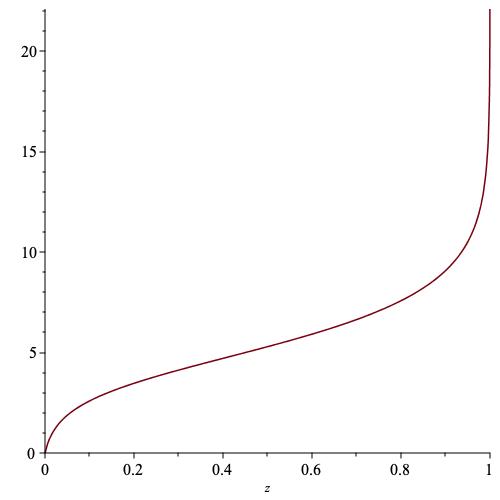Prove that:
$$ f(x) = \log\big( {}_2F_1(a,\,b\,;\,c\,;\,x^{-1})\big),\;\;a,b,c>0 $$
is convex (and decreasing) on $(1,\infty)$.
It actually seems that the stronger result that $f\big((x+1)^{\beta}\big)$, $\beta>0$, is completely monotonic, is true. I saw a post on here proving a similar result using continued fractions to show that all the Taylor series coefficients are positive when $c\ge a+b$. I wonder if such an approach could used to show that the coefficients of a series expansion of $f\big((x+1)^{\beta}\big)$ have alternating signs for $x>0$ ( for arbitrary $a,b,c>0$ ). Or compute the inverse Laplace transform?
This result would imply that $f(\!\sqrt{x})$ is convex on $(1,\infty)$, which is equivalent to the function:
$$ g(x) = \frac{ _2F_1(a,\,b\,;\,c\,;\,\alpha x)}{ _2F_1(a,\,b\,;\,c\,;\,x)},\;\; 0<\alpha<1,\;\,a,b,c>0$$
being decreasing on $[0,1]$, which is what I originally wanted to show.
This result is important to show UMP properties of multiple determination coefficient tests.

